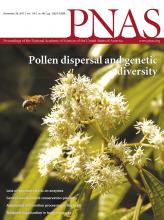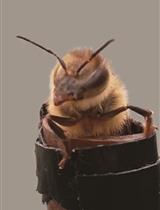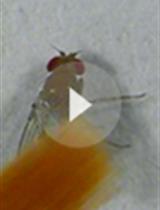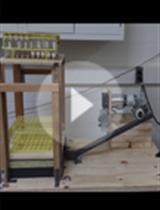- EN - English
- CN - 中文
Testing for Assortative Mating by Diet in Drosophila melanogaster
通过饮食控制测定黑腹果蝇的选型交配
发布: 2018年10月20日第8卷第20期 DOI: 10.21769/BioProtoc.3057 浏览次数: 5663
评审: Qin TangAnonymous reviewer(s)
Abstract
Experimental studies of the evolution of reproductive isolation in real time are a powerful way to reveal the way that fundamental processes, such as mate choice, initiate divergence. Mate choice, while frequently described in females, can occur in either sex, and can be affected by the genetics or environment of an individual. Here we describe simple protocols for assessing mating outcomes in fruit flies, which in this context can be used to assess reproductive isolation derived from rearing on different diets over multiple generations.
Keywords: Ecological adaptation (生态适应)Background
Drosophila melanogaster is an important model for studying sexual selection, of which mate choice is a central component. Mate choice can be effected by many different variables such as direct and indirect genetic effects, environment and nutrition. This protocol was implemented in the previously published study (Leftwich et al., 2017). In that study, this assay was combined with microbiome characterization and manipulation to assess the impact of splitting a single population into two isolated groups reared on different diets over multiple generations.
Materials and Reagents
- Flystuff Drosophila tube polypropylene (Scientific Laboratory Supplies, Flystuff, catalog number: FLY1318 )
- Flystuff Cotton balls (Scientific Laboratory Supplies, Flystuff, catalog number: large for bottles FLY1200 and small for vials FLY1028 )
- Fly morgue (Plastic Funnel and Plastic Beaker)
- Thin paintbrush
- Dissecting needle (Watkins & Doncaster, catalog number: D416 )
- Pooter (homemade) (3 ml graduated Pasteur pipette, 6 mm rubber tubing, muslin)
The plastic pipette is connected to the rubber tubing with muslin acting as a physical barrier between pipette and tube. Individual flies may be collected into the pipette by inhaling gently through the rubber tubing. - Polystyrene Petri dishes, 90 mm (Fisher Scientific, FisherbrandTM, catalog number: 12654785 )
- Filter paper, 90 mm, QL 100 (Fisher Scientific, FisherbrandTM, catalog number: 11566873 )
- Parafilm
- Drosophila melanogaster – stock lines Oregon-R and Dahomey (Bloomington Stock Center)
- Carbon Dioxide, Industrial Grade, BOC, 40-VK
- Fly food ingredients (store in a cool, dry place to maximize shelf life, do not keep for more than 12 months)
- Active Dried Yeast, 500 g (BakeryBits, catalog number: BB-1606 )
- Molasses
- Agar (ForMedium, catalog number: AGA01 )
- Cornmeal/Maize Flour
- Sugar
- Starch (Fisher Scientific, FisherbrandTM, catalog number: S/7960/60 )
- Inactivated Brewer's Yeast
- Propionic Acid (Sigma-Aldrich, catalog number: 402907 )
- Nipagin M (Sigma-Aldrich, catalog number: H3547 )
- Ethanol absolute (Thermo Fisher Scientific, catalog number: E/0600DF/C17 )
- Red Grape Juice (BTP Drewitt Ltd.)
- Sugar yeast agar (SYA) medium (see Recipes)
- Cornmeal molasses yeast (CMY) medium (see Recipes)
- Starch medium (see Recipes)
- Grape juice plates (Purps) (see Recipes)
Equipment
- Flystuff Drosophila Glass Stock Bottle (Scientific Laboratory Supplies, Flystuff, catalog number: FLY1086 )
- Sharp scalpel
- Flystuff Benchtop Flow Buddy System with Fly Pad and Gun (Scientific Laboratory Supplies, Flystuff, catalog number: FLY1010 )
- Stereomicroscope (Leica Microsystems, model: Leica MZ75 )
- Watson Marlow Food Dispenser (Watson-Marlow Fluid Technology Group, catalog number: 520Di )
- Embryo collection cage Large (Scientific Laboratory Supplies, Flystuff, catalog number: FLY1214 )
Software
- R v3.3.2 (R Core Team, 2017)
- JMating v1.0 (Carvajal-Rodriguez and Rolan-Alvarez, 2006)
Procedure
文章信息
版权信息
© 2018 The Authors; exclusive licensee Bio-protocol LLC.
如何引用
Leftwich, P. T. and Chapman, T. (2018). Testing for Assortative Mating by Diet in Drosophila melanogaster. Bio-protocol 8(20): e3057. DOI: 10.21769/BioProtoc.3057.
分类
神经科学 > 行为神经科学 > 实验动物模型 > 其它
您对这篇实验方法有问题吗?
在此处发布您的问题,我们将邀请本文作者来回答。同时,我们会将您的问题发布到Bio-protocol Exchange,以便寻求社区成员的帮助。
Share
Bluesky
X
Copy link












